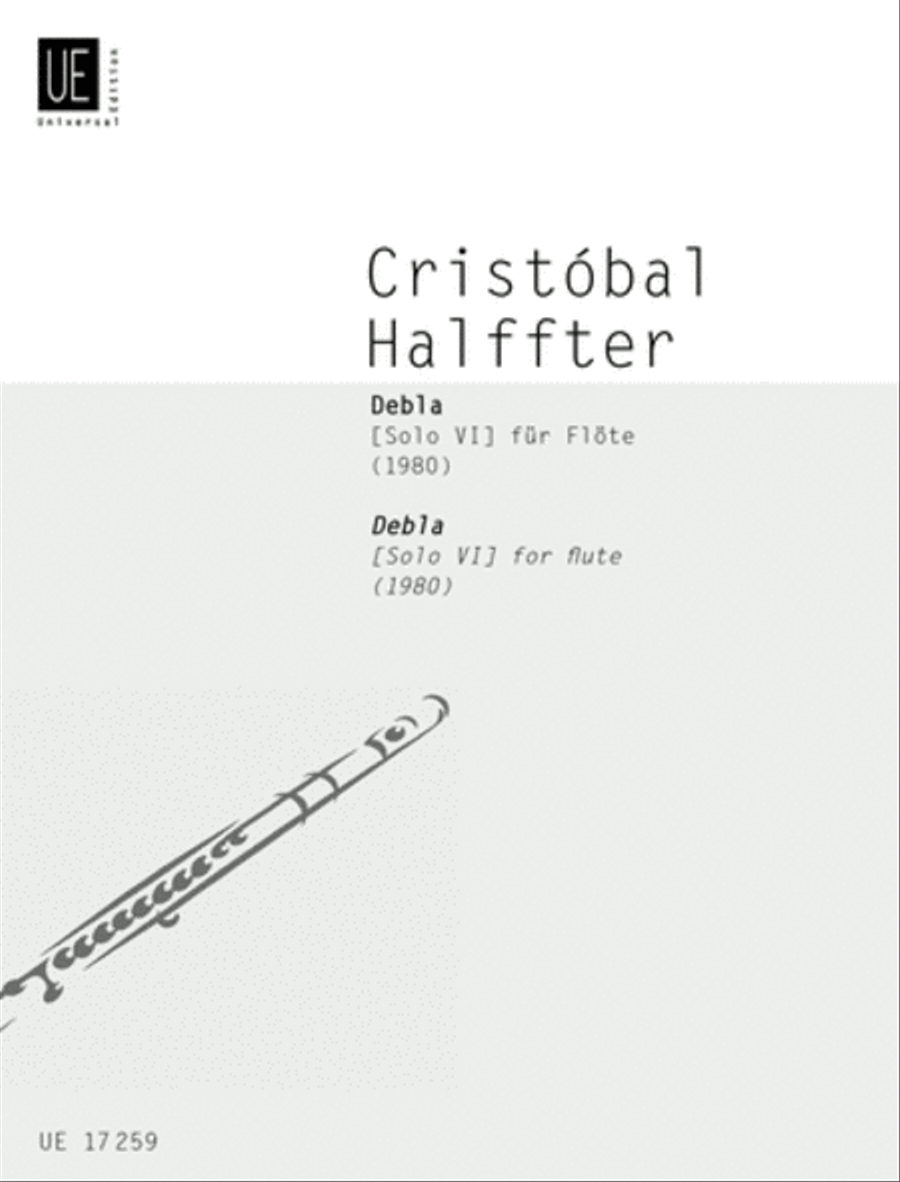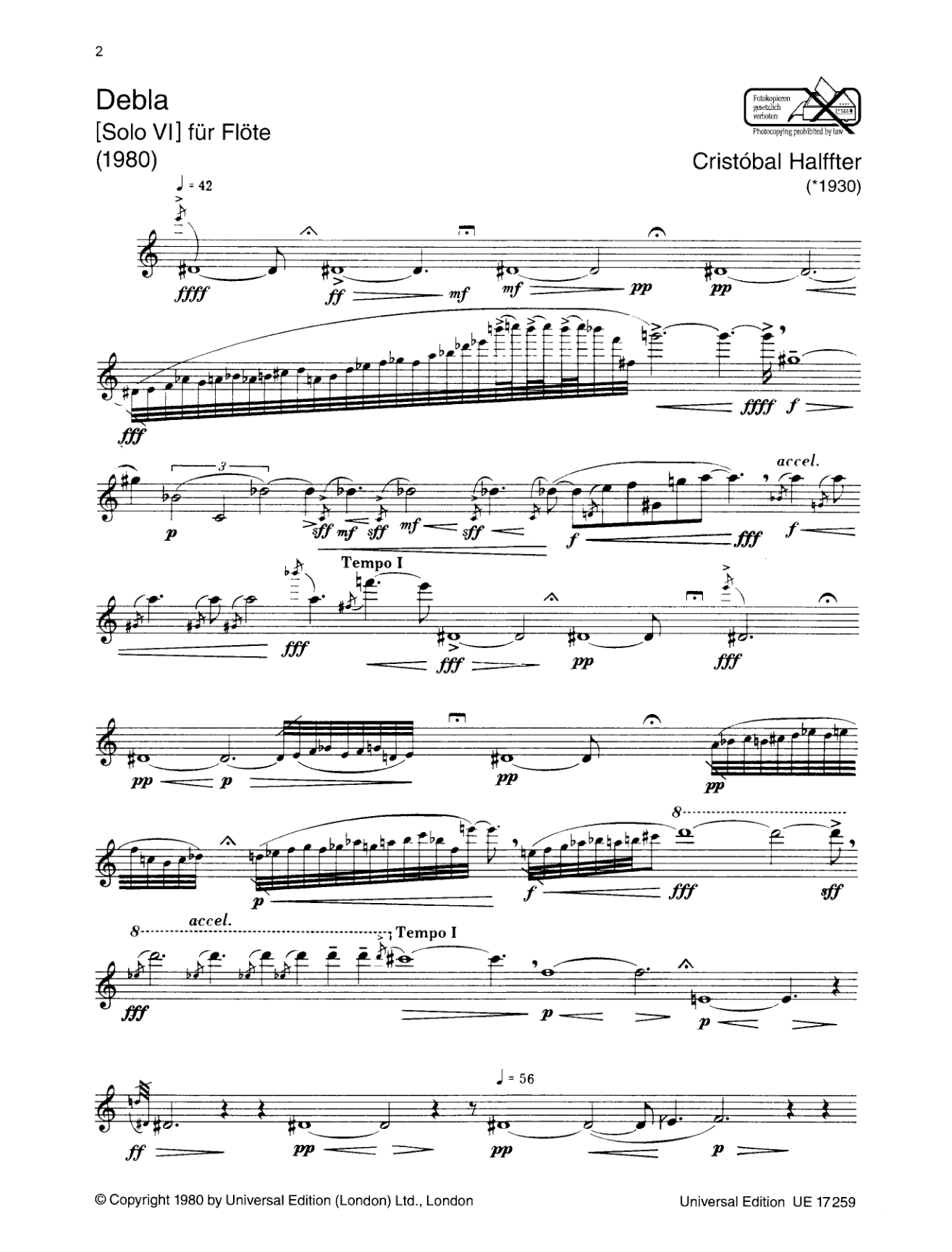
Happy Present Meet

Cristobal Halffter Debla Solo VI for Flute Solo (1980)
크리스토발 할프테르 데블라 플루트 솔로
크리스토발 알프테르(Cristóbal Halffter)의 "데블라(Debla)"는 1980년에 작곡된 독주 플루트를 위한 현대 음악의 걸작입니다
이 곡은 원래 플라멩코 용어인 '데블라(Debla)'에서 유래한 것으로, 항상 보컬이며 반주가 없는 노래의 한 형태입니다. 넓은 멜리스마가 긴장감을 고조시키다가 절정에 이르는 것이 특징이며, 기술적인 난이도가 높아 시험이나 연주 대회 등에서 자주 사용됩니다
Difficulty: difficult
"Debla" is originally a flamenco term for a form of song. It is characterised for always being vocal and unaccompanied. lts wide melismas rise in tension until reaching a climax; at this moment the singer often beats his knee in regular and inflexible time. The high technical degree of difficulty of the work has made it habitual in examinations, competitions of virtuosity, etc. But Halffter's talent lies in composing a work of great difficulty without ever losing its human content and expressiveness, which is characterised in all his work. "Debla", dedicated to Maria Halffter, was first performed by her in Montepulciano in August 1980. The high technical degree of difficulty of this work has made it habitual in examinations, competitions of virtuosity, etc.
"Debla"는 원래 노래 형식을 가리키는 플라멩코 용어입니다. 항상 소리를 내며 반주가 없는 것이 특징입니다. 클라이막스에 도달할 때까지 넓은 멜리스마의 긴장감이 높아집니다. 이 순간 가수는 규칙적이고 융통성 없는 시간에 종종 무릎을 친다. 작품의 높은 기술적 난이도로 인해 시험, 기교 경쟁 등이 습관화되었습니다. 그러나 Halffter의 재능은 그의 모든 작품의 특징인 인간적 내용과 표현력을 잃지 않으면서 매우 어려운 작품을 작곡하는 데 있습니다. 마리아 하프프터(Maria Halffter)에게 헌정된 "Debla"는 1980년 8월 몬테풀치아노에서 그녀가 처음 공연했습니다. 이 작품의 높은 기술적 난이도로 인해 시험, 기교 대회 등에서 습관적으로 연주되었습니다.
Product number: UE17259
Edition: Score
Series: Universal Querflöten Edition
UPC:803452009405
ISBN:9783702411817
ISMN13: 9790008039799
Weight: 0,06 kg
Format: 232 x 305 mm
Pages: 8
작곡가 Cristobal Halffter
에디터 Braun, Gerhard

Messiaen Le Merle Noir for Flute and Piano
Mozart Sinfonia Concertante, K.448 for 2 Flutes and Piano
Doppler Air Valaques, Op.10 for Flute and Piano
Clarke Walk Like This! for 4 Flutes
Varese Density 21.5 for Flute Solo
Berio Sequenza Vol.1 for Flute Solo - 1958
Yun, I (윤이상) Etude (1974) for Flute Solo
Boulez Sonatine for Flute and Piano
Emmanuel Pahud Cadenzas to the Flute Concertos by W. A. Mozart for Flute Solo